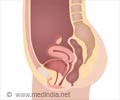Q: Which doctor should I consult for POP?
A: You should first consult a gynecologist or a urogynecologist for evaluation of the condition.
Q: How can I know that I am suffering from POP?
A: If you get recurrent urinary tract infections, pain during sexual intercourse, difficulty in starting urination, stress-induced urinary incontinence or constipation, you may be suffering from POP.
Q: How serious is POP?
A: The complexity of the problem depends on which stage the POP is present at the time of diagnosis. If it is diagnosed early, pelvic surgery may not be required. Here, the pain and pressure may be relieved by therapeutic interventions as well as lifestyle changes, doing certain types of exercises, and using a pessary in the vaginal canal to support the prolapsing structures.
Q: Is a prolapse painful?
A: Pain can be experienced during sexual intercourse (dyspareunia), which is a common manifestation of POP.
Q: Can a prolapsed bladder cause incontinence (loss of voluntary control over urination and defecation?
A: A prolapsed bladder can result in incontinence due to emotional stress.







